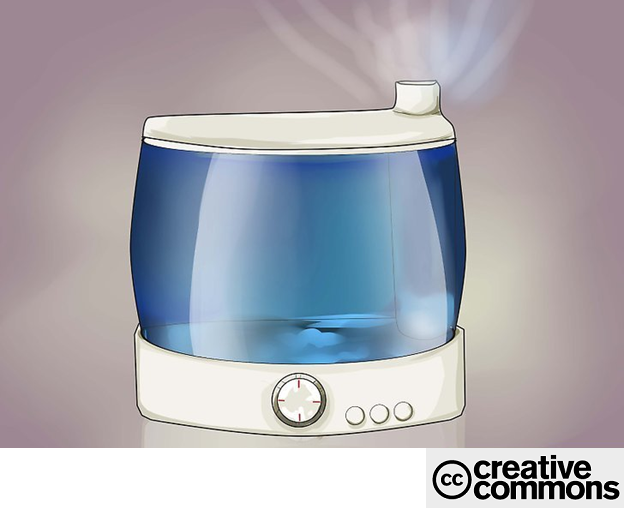Ensure the humidifier is clean
No one wants a bacteria or fungi filled water tank! Be sure to empty tanks, wipe them completely dry and refill with fresh water daily. Disinfect to remove film and any other deposits, rinsing thoroughly before the next use. Don’t forget to wash and dry before storing it!
Always use distilled water
Remember – never use tap water in your humidifier! By using distilled water, you reduce the potential for microorganisms and minerals to be dispersed into the room.
Keep an eye on humidity levels
When indoor humidity levels exceed 50 percent, the moisture in the air can lead to growth of mold and bacteria. Some humidifiers have a built-in control you can set to a desired humidity level, or you can use an inexpensive hygrometer to monitor humidity levels in your home.
What is the verdict?
The usage of cool mist and steam humidifiers are common when it comes to treating cough and cold symptoms. According to the CDC, cool mist humidifiers can soothe a cough by loosening mucus, but this is not a proven theory. It’s important to note that not all coughs are due to colds. While humidification might be inappropriate for a person with an asthma cough who is sensitive to humidity-loving allergen sources, they provide a comfortable and cozy environment at home, so cold and cough symptoms won’t get aggravated if you install them. Even if they don’t contribute to reducing these symptoms, the air quality in your home drastically improves for sure.






